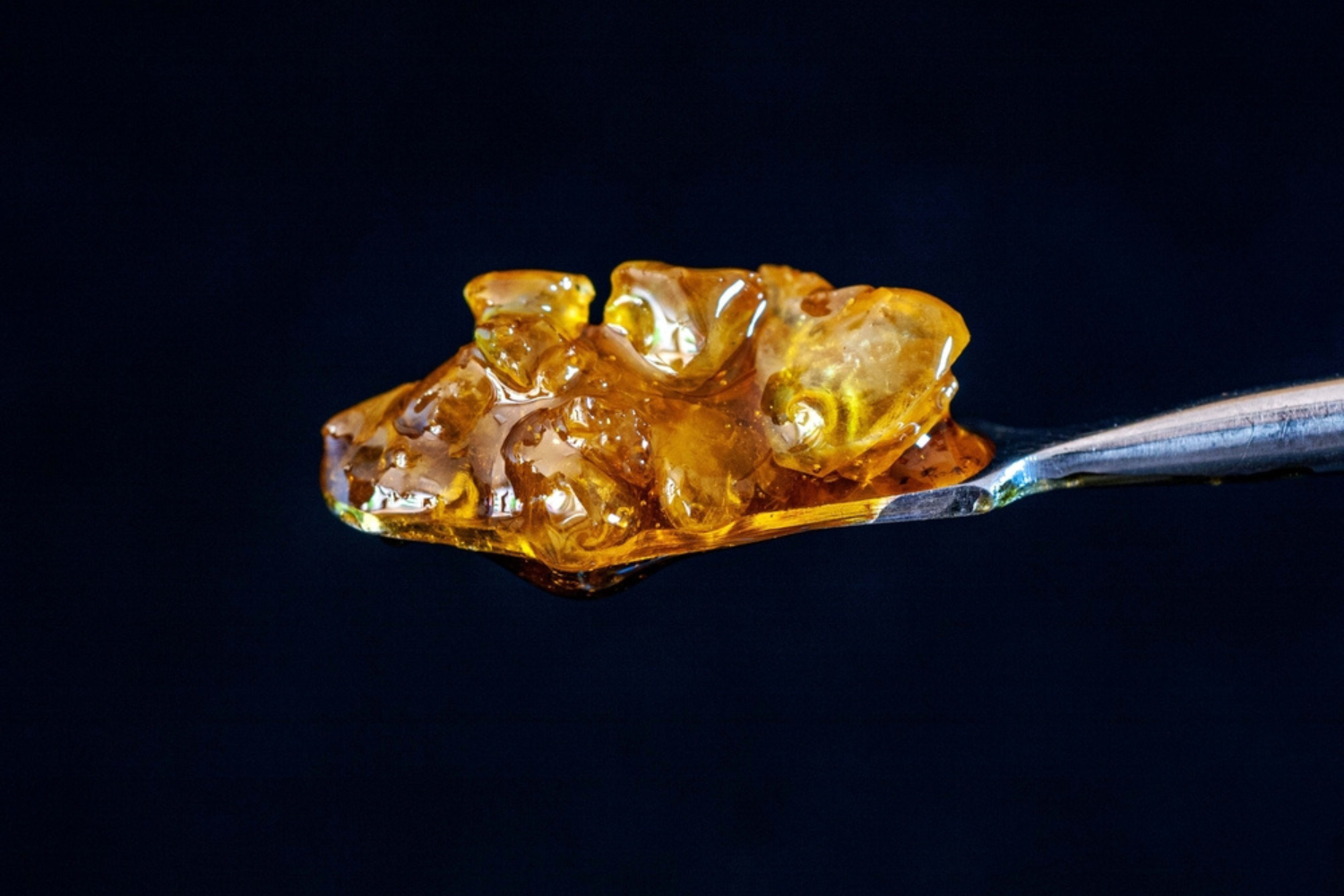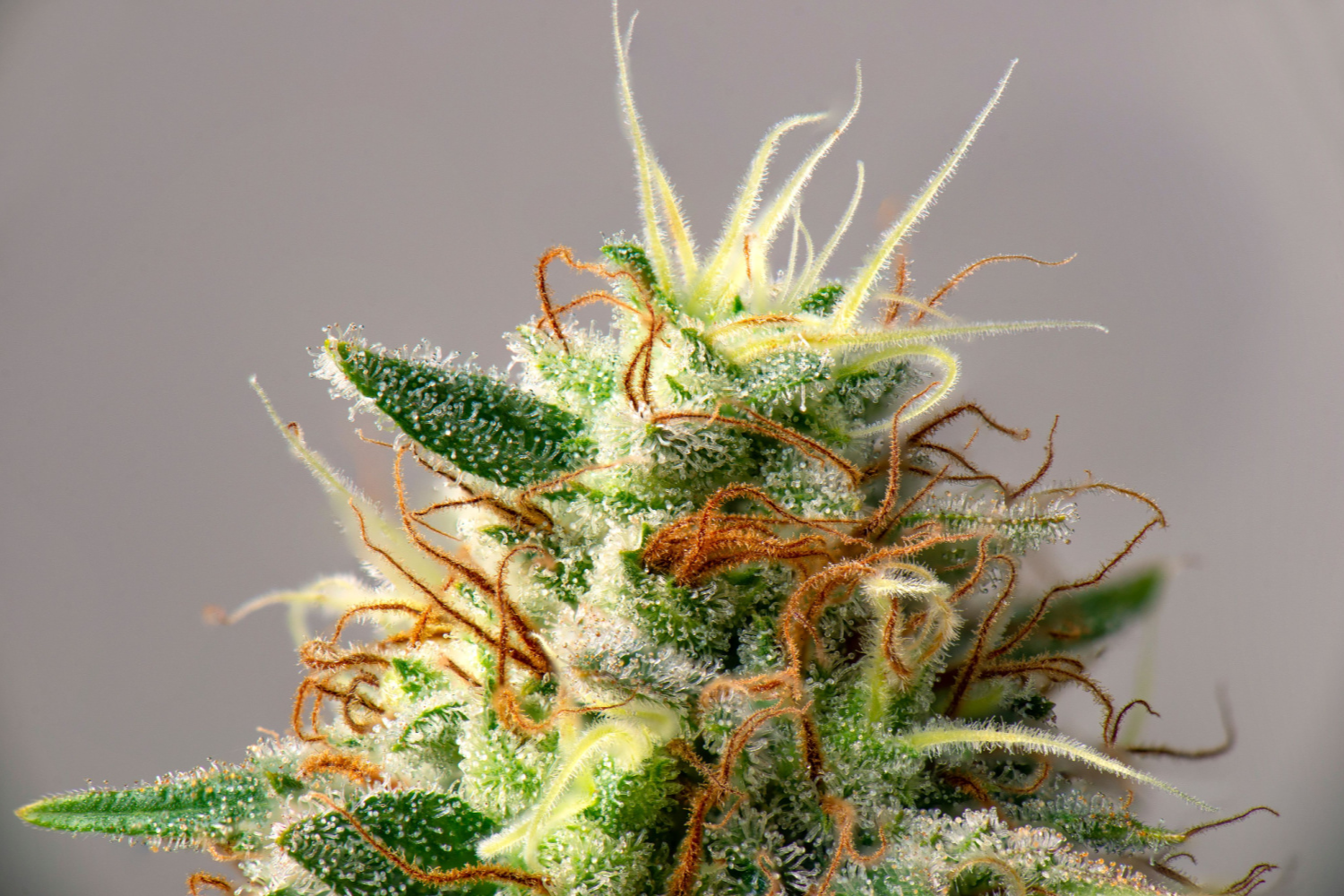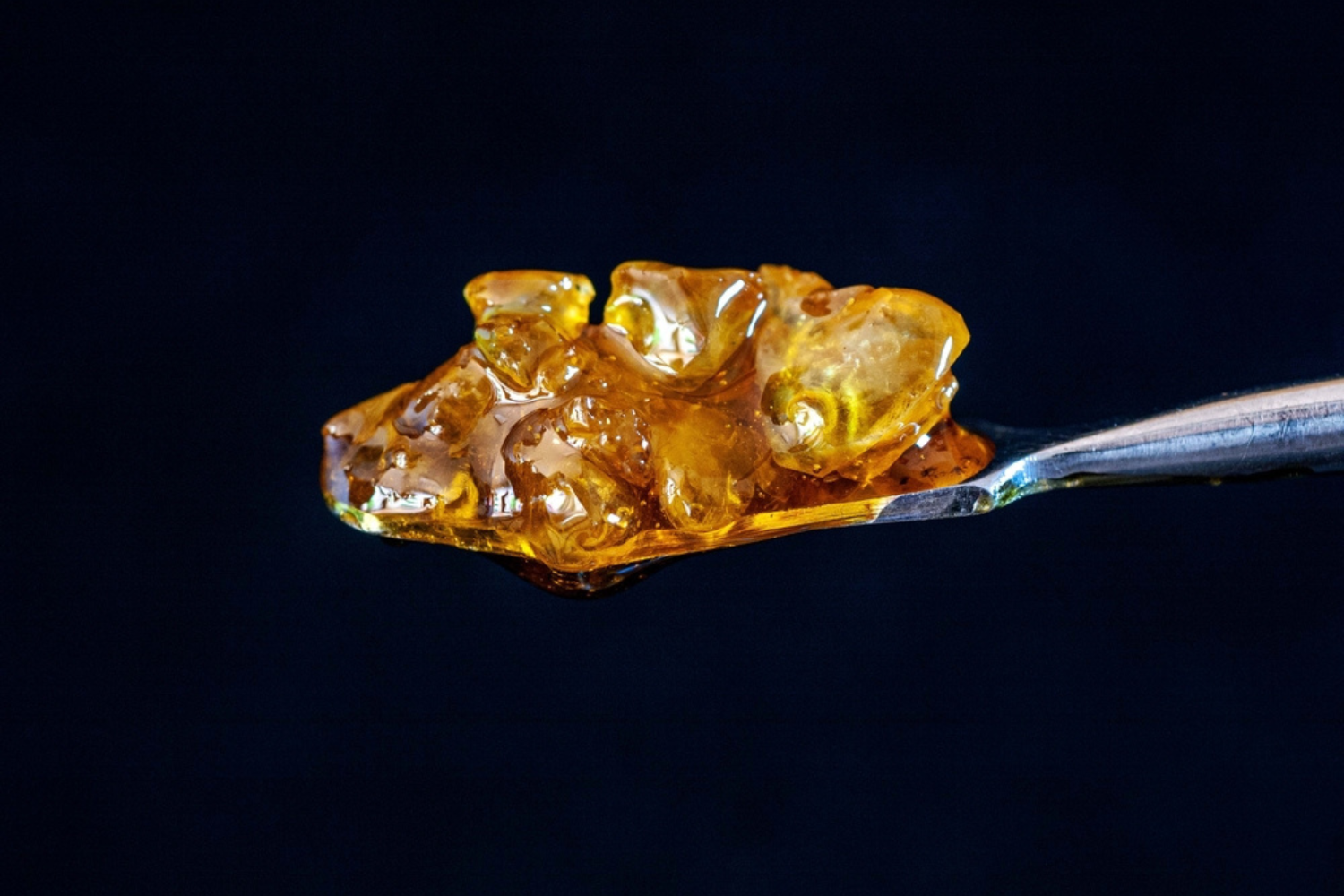Delta 8 THC is still new to the hemp-derived supplement scene, but its potential recreational and medical benefits opened a new door to novices and regular users of cannabis. A delicate balance between the non-intoxicating CBD and highly psychotropic Delta 9 THC, Delta 8 has proven its mettle among hemp supplement fans.
However, Delta 8 THC walks an equally thin line in the eyes of the law. While industrial hemp (cannabis with less than 0.3% Delta 9 THC) is federally legal, an impending drug test could be concerning, especially for frequent users.
Whether an upcoming drug test or other factors concern you, it's crucial to understand how long Delta 8 THC will stay in your system.
What is Delta 8?
Before we get into the details, let's take a quick look at Delta 8 THC.
Delta 8 THC is another form of tetrahydrocannabinol (THC) - the psychotropic component found exclusively in cannabis. Its more prominent cousin, Delta 9 THC, belongs to the same group. Specifically, Delta 8 is an isomer of Delta 9, meaning it contains the same molecular makeup but with a different structure.
But despite its association with THC, Delta 8's effects are markedly different due to its chemical build. Specifically, the user experience mirrors Delta 9 in most respects, but the psychoactive effects are substantially milder.
Thanks to this key difference, consumers can enjoy the potential medical benefits and recreational experience of Delta 9 THC. However, the milder psychoactive effects eliminate Delta 9 THC's side effects, like anxiety, paranoia, dry mouth, headache, and dizziness.
How is Delta 8 Made?
Delta 8 occurs naturally inside the cannabis plant, but its presence is so minor that direct extraction would be impractical. Selective cultivation may work, but it would theoretically take a long time to create a strain with notable levels of Delta 8.
But the main problem is legality. Delta 8 is an isomer of Delta 9, so it would be possible to use a technique called "isomerization" to rearrange the molecules and convert Delta 9 into Delta 8 THC.
However, this method requires much more Delta 9 THC than the 0.3% limit in the hemp cannabis plant variety. So how can producers get around this and keep Delta 8 technically legal? As luck would have it, CBD is also an isomer of THC.
CBD Isomerization
CBD isomerization into THC may seem cutting-edge, but it's been around for some time. Israeli cannabis researcher Raphael Mechoulam - who discovered and isolated THC in the 1960s - along with fellow experts Leonard P. Sarna and G.R. Webster, patented the process in 2002.
But make no mistake, CBD isomerization is nothing like the processes used for making oils, vapes, and similar products. Isomerization requires trained chemists who are experts in their fields.
Considering the equipment and substances involved, it's impossible for the average person (or even a trained expert) to make Delta 8 with common household ingredients or supplies.
step 1: Choose a solvent
First, manufacturers dissolve the CBD into an alkane solvent. Alkanes in chemistry are organic chemicals (also known as hydrocarbons) made exclusively of carbon and hydrogen atoms. Some examples include methane, butane, and heptane.
Step 2: Add acid
This is where things get messy. The next step is to add a Lewis acid - acids that can draw pairs of electrons from Lewis bases. These bases can transfer their electrons to the acid to rearrange the CBD's molecular structure.
Lewis acids are highly toxic, including sulfuric acid and hydrochloric acid, both mentioned in Mechoulam's patent. He and his team also noticed that different acid and solvent combinations affect the efficiency and duration of the isomerization process.
Step 3: Rinse
Finally, manufacturers flush the mixture with a combination of water and sodium bicarbonate (a.k.a. baking soda). This neutralizes the acids and removes them - at least ideally.
However, in an unregulated market, it's not uncommon for some unscrupulous vendors to cut corners. While this may save money, it's hazardous.
Never consume Delta 8 THC unless the company provides third-party test results.
Is Delta 8 The Same As Delta 9?
Delta 8 and Delta 9 are both THC, so they break down into the same THC metabolites and are therefore detectable in any generic drug test, blood test, urine test, saliva test, or hair follicle test.
What separates Delta 8 and Delta 9 is how they're built. Both have the same molecular makeup, but a slight difference in structure significantly impacts their potency. This discrepancy is why the effects of Delta 8 THC are comparable to a less potent version of Delta 9.
Aside from the structural difference we mentioned earlier, Delta 8 and Delta 9 are the same psychoactive substance from a chemical and molecular standpoint. Consequently, most drug tests will detect Delta 8.
If you have a drug test coming up, it's best to refrain from using Delta 8 THC for several days.
How Does D8 Work In Our System?
We've established that Delta 8 and Delta 9 THC are cut from the same cloth. But in a strange and ironic twist, they don't interact similarly with our endocannabinoid system (ECS) receptors.
There are two specific pathways to which cannabinoids may bind (although some, like CBD, don't interact with either of them). The CB1 receptors are located in our central nervous system, while our CB2 variants exist throughout the peripheral areas, such as the immune, digestive, reproductive, and musculoskeletal systems.
Cannabinoids with a strong affinity for the CB1 group - such as Delta 9 THC - cause strong psychoactive effects. So far, Delta 9 is the only compound that profoundly impacts our central nervous system's CB1 pathways.
Delta 9 also binds to our CB2 receptors, allowing it to generate a physical "body high."
However, despite being almost identical to Delta 9, Delta 8 has little affinity for the CB2 receptors and a reduced ability to bind with our CB1 variants. This is why Delta 8 is a less psychoactive substance than its popular cousin.
How Long Does Delta 8 Stay In Your System?
The amount of time Delta 8 THC stays in your body depends on several factors. The effects will last a few hours, depending on the method of consumption. Smoked Delta 8 wears off within two to three hours, while edible effects can last around eight hours.
However, as is always the case with cannabis, how long Delta 8 stays in your system - and the window in which you'll test positive for THC - depends on many factors, most of which are beyond your control.
Age
Age determines how long Delta 8 THC will stay in your system. Delta 9 THC is known to have stronger effects as people get older. However, chronological age alone probably has little to do with this. Instead, the associated changes in metabolism, body fat, and other age-related health factors likely contribute to this correlation.
Genetics
Genetics affect how our bodies react to THC. A small percentage of cannabis users are highly susceptible to THC. Some people report feeling high from full-spectrum CBD supplements, despite containing no more than 0.3% THC.
If you believe you may have high THC sensitivity, start with a low dose of Delta 8.
Body Fat Ratio
THC and other cannabinoids bind to fat. This is why extracts are suspended in a fatty carrier, such as MCT or hempseed oil.
Consequently, Delta 8 THC binds to fat cells, slowing down the elimination of cannabis metabolites and increasing the window for Delta 8 to show up on drug tests.
If you're concerned about eliminating THC metabolites from your system quickly, losing weight reduces the number of fat cells in your body, reducing the number of metabolites you retain.
Metabolism
Everyone knows a person who seemingly consumes a metric ton of food daily, yet maintains the same weight. As it turns out, this genetic blessing can be an advantage when faced with drug testing.
Again, THC metabolites need to flush out of your body, so a faster metabolism will help reduce the time it takes to eliminate cannabinoid traces.
Inversely, people with slow metabolisms will need more time to eliminate Delta 8 THC from their systems.
Fortunately, some simple changes can make a big difference. A healthy and balanced diet rich in fruits, vegetables, and dietary fiber helps improve the body's metabolism and has many other health benefits.
Dosage
Common sense dictates that the more volume of a drug in your system, the longer it takes for you to eliminate it. THC is no exception.
If you want to limit the amount of Delta 8 in your system, choose lower potency Delta 8 THC products.
Frequency of Use
Occasional users who consume Delta 8 THC carry it in their system for roughly a week. However, frequent users may need about a month before an impending drug test.
Since drug tests are often random and short-notice, regular Delta 8 users are likelier to fail a drug test than casual consumers.
How Long Does Delta 8 Stay In Your Urine?
Urine tests are effective at detecting THC metabolites for two to thirty days, according to the Center for Advancing Health (CFAH).
Again the many important factors above can determine whether you'll fail a urine drug test.
How Long Does Delta 8 Stay In Your Blood?
Blood tests have a smaller detection window. According to one study, THC metabolites were only detectable for three to four hours (Sharma et al., 2012).
How Long Does Delta 8 Stay in Hair Follicles?
Hair follicles retain THC longer than anywhere else in the body. This type of drug test can detect metabolites for up to 90 days.
However, there's a severe flaw. Since hair follicle tests examine the oil in your scalp, external contact with THC through smoke or other means can trigger a false positive.
How Long Does Delta 8 Stay in Saliva?
The saliva test is a standard method law enforcement uses in roadside stops. They're quick, convenient, cheap, and easy to transport in small kits.
Although saliva tests have been controversial for their reliability, they typically detect THC within 24 to 72 hours.
Factors Determining the Duration of Delta 8 THC
We already discussed the factors that impact how long Delta 8 THC stays in your system. These same considerations also impact Delta 8's duration of effects.
Let's recap:
-
Age: physical and biochemical changes increase THC sensitivity.
-
Genetics: endocannabinoid system (ECS) concentration and distribution can affect how long THC affects the brain and body.
-
Metabolism: individuals with high metabolisms process and eliminate THC faster.
-
Dosage: higher doses trigger stronger potency and longer duration of effects.
-
Body size: generally, people with larger body mass need more cannabinoids.
-
Frequency of use: consistent, heavy consumption eventually builds tolerance, reducing the potency and length of Delta 8 THC's effects.
Does Delta 8 Show Up On A Drug Test?
Delta 8 is a fantastic product, but it's perfectly reasonable to worry about whether the compound will cause you to fail a drug test.
How Drug Tests Work
Drug tests come in various forms, such as urine tests, blood tests, hair follicle tests, and saliva tests. However, they're all designed to detect remaining THC metabolites after consumption.
The key term is "THC metabolites." Despite their structural differences, Delta 8 and Delta 9 are THC, so drug tests will detect them with equal efficacy.
How Long After Consuming Delta 8 Can You Fail A Drug Test?
You can fail a drug test almost immediately after consuming Delta 8 THC. Once those metabolites appear in your system, the only thing you can do is wait.
The more time you have between consumption and an upcoming drug test, the less likely you are to test positive.
Types of Delta 8 Products
Delta 8 THC products are available in every form imaginable. Vapes, edibles, drinks, topicals, and dried flower gained much mainstream traction in the past few years.
Each option has advantages and disadvantages, so choose the Delta 8 THC product that works best for your recreational or therapeutic needs.
Flower
A classic among cannabis lovers, Delta 8 THC flower is ideal for smoking in joints, pipes, or dry herb vaporizers. It provides a sense of authenticity that other methods can't mimic.
Smoking is also an excellent choice for those who need immediate effects. The cannabinoids pass through the lungs into the bloodstream. As a result, most users report an impact within a few minutes.
However, since cannabis contains only trace amounts of Delta 8, manufacturers infuse high-CBD hemp flower with Delta 8 extract.
The downside to smoking is that, while the effects begin quickly, they only last around two to three hours. Additionally, flower is arguably the "dirtiest" consumption method, generating hydrocarbons, particles, and tar in its smoke.
However, despite this obvious concern, no evidence exists suggesting that cannabis smoke causes cancer, emphysema, or the endless list of other diseases associated with tobacco use.
One proven concern is that cannabis smoke wears down the cilia, which are tiny hairs the lungs rely on to catch and filter unwanted toxins. Frequent cannabis use makes users more susceptible to respiratory infections like bronchitis.
Vapes
Vapes are highly concentrated extracts smoked at high temperatures in a small cartridge or disposable vape pen. But unlike flower in joints, pipes, or water pipes (bongs), vape concentrates don't get hot enough to combust.
The lack of combustion reduces harmful hydrocarbons, carcinogens, particles, and tar from conventional flowers.
Vaping offers additional advantages compared to regular smoking. First, the products are highly concentrated, requiring less inhalation.
Second, they're excellent for people who need a high dose for recreational or therapeutic effects.
Third, vapes are more discreet. They're often indistinguishable from conventional nicotine e-cigarettes and leave almost no lingering odor (unlike burnt flower).
Edibles
Edibles like gummies or oils are staples of the hemp supplement industry. However, their benefits and drawbacks determine whether these Delta 8 THC products suit your needs.
Unlike smoking, edibles primarily rely on the digestive system. Since digestion is a slow process, you won't notice fast results. This downside can make edibles impractical for sudden symptoms.
But there's an upside. Edibles may take longer to kick in, but the effects can last up to eight hours. This makes ingestion an ideal choice for persistent symptoms associated with conditions like chronic pain (although medical research into Delta 8 THC is sparse and inconclusive).
Topicals
Topicals share nothing in common with smoked or ingested cannabis. Unlike their counterparts, topicals don't reach the bloodstream, so they cause no psychoactive effects.
Creams, balms, and lotions are handy for fast, focal relief. Simply apply liberally to the affected area, and you should notice results within moments.
You can make topicals at home by mixing Delta 8 THC oil with any store-bought moisturizing cream.
How Long Do Delta 8 Gummies Stay In Your System?
It's impossible to pinpoint exactly how long Delta 8 gummies stay in your system. Regarding THC metabolism, research doesn't seem to differentiate between edible and smoked cannabis.
For instance, one review assumes the route of administration is one determinant of how long THC metabolites remain in the body but doesn't explicitly give different estimates for edibles and smoking (Moeller et al., 2017).
However, this is likely because it's a moot point. THC can last in the system for days, weeks, or months. The odds are that Delta 8 gummies or similar products will take longer to clear but not long enough to make a significant difference, given the detection window of most drug tests.
How Long Do Delta 8 Vapes Stay In Your System?
As we discussed, Delta 8 vapes (or other smoked products) wear off within about two hours. But without specific numbers - not to mention the laundry list of mitigating factors - it's best to go by the general detection ranges of conventional drug tests.
How to Flush Delta 8 THC Out Of Your System
If you're concerned about an impending drug test, clearing THC from your system is critical. Fortunately, you don't have to rely on your body to do all the work. There are ways to help speed up the process.
However, "speed up" is a relative term. Realistically, there's no quick fix. Even the most extreme detox measures require at least a few days to completely clear Delta 8 THC from your system.
Detox Drinks
Detox drinks are available in any health food store, grocery store, or pharmacy. These products are designed to provide nutritional benefits but also contain natural ingredients that help the body flush out unwanted "toxins" like THC.
Apple Cider Vinegar
Apple cider vinegar isn't very appealing to the palate, but the product is famous as a detox product - assuming you can stomach it.
Of course, beggars can't be choosers. If you're in a pinch, apple cider vinegar can help flush THC and other unwanted compounds from your body.
Hydration
Health experts continually tell us how vital constant hydration is. This is even more critical if you want to flush out THC.
The more water you consume, the more urine you produce. Since you expel THC metabolites every time you urinate, frequent pee breaks can help reduce THC to undetectable levels.
Abstinence
An easy way to reduce your chances of failing a drug test is abstinence. That doesn't mean you have to give up Delta 8 entirely, but if drug tests are a regular occurrence, try timing your use accordingly.
It also helps to minimize consumption as much as possible, which shortens the time it takes for Delta 8 to leave your system.
Final Thoughts: How Long Does D8 THC Stay In Your System?
Delta 8 THC can stay in your system for days, weeks, or months. It's uncertain how Delta 8 THC affects your overall health, but it's far from being recognized as a medical supplement.
As a result, employers and other entities won't look kindly on Delta 8 THC consumption, despite its notable differences from Delta 9.
It also doesn't help that Delta 8 has come under fire in many states, despite being technically legal. But because THC is listed as a Schedule I controlled substance in the U.S., no protections exist for people with state-supplied medical cannabis permits.
Consequently, employers aren't required to accommodate medical cannabis users. If drug tests are mandatory in your line of work, exercise caution when consuming Delta 8 THC.
But if your tests are parts of a legal arrangement, such as parole or probation, avoid any form of THC.
Using Delta 8 when you know you'll face drug tests is a dangerous balancing act. In cases like these, the best advice we can offer is "use at your own risk."





